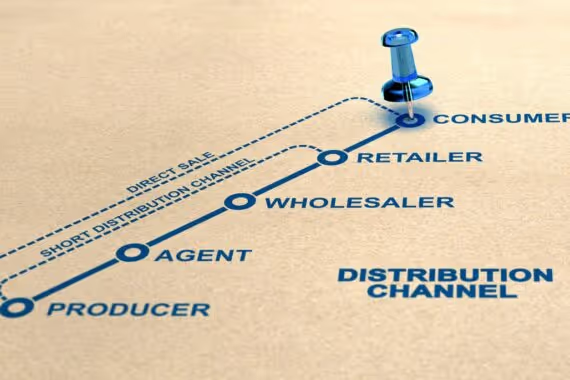Client Alert: BIS issues new rule expanding scope of Entity List to cover affiliates

The U.S. Department of Commerce’s Bureau of Industry & Security (BIS) on September 29, 2025 took a significant yet anticipated step by adopting an Interim Final Rule, referred to as the Affiliates Rule, extending the restrictions imposed on entities listed on the Entity List (“EL”) to unlisted entities that are 50% or more owned by one or more of the listed entities. Presently, naming to the Entity List, the BIS’s strictest listing of non-U.S. parties, was limited to the named entity and none of its legally distinct affiliates or subsidiaries. This rule drastically changes that by capturing a wider range of related entities whose names would not necessarily be on the list. This action will have a momentous impact on many companies in China and elsewhere, significantly increasing compliance burdens, particularly on companies doing business in or with sensitive regions.
In Brief
- BIS implementing new rule whereby parties 50% or more owned by parties named to its Entity List will be subject to the same restriction as their listed owner(s).
- By targeting affiliated entity, the new rule aligns the scope of the Entity List’s coverage with that of OFAC’s SDN List.
- Companies around the world are now obliged to exercise far more due diligence and vetting.
Context
The Entity List first emerged in the late 1990s and has seen dramatic expansion in the past decade. A de-facto “blacklist,” the Entity List, imposes strict limitations on the transfer of goods, software and technology subject to the U.S. Export Administration Regulations (EAR).1 What is “subject to the EAR” is defined through a number of complex rules.
The Affiliates Rule is not entirely new. BIS’ cousin agency, the U.S. Department of the Treasury’s Office of Foreign Assets Controls (“OFAC”) has long maintained the approach that its sanctions applied not only to the persons designated on its List of Specially Designated Nationals and Blocked Persons (the “SDN List”), but also to unlisted downstream entities of such designated parties that are 50% or more owned in aggregate by one or more of the listed entities. The BIS move closely aligns the restrictions with OFAC’s.
Key Aspects of the New Regulations
Expansion to affiliates Unlisted entities which are 50 or more owned, directly or indirectly, by one or more of the entities listed on the Entity List are now subject to its restrictions Military End Users Unlisted affiliates of entities on the Military End Users (MEU List) are also covered by the Affiliates Rule. Most restrictive license requirements If multiple Entity List entities have majority ownership of an unlisted entity, the unlisted entity inherits the license requirement that are most restrictive. For example, Company X owns 45% and company Y owns 10% of Company Z. Company X and Y are listed on the Entity List. The license review policy for Company X is presumption of approval, and the license review policy for Company Y is presumption of denial. Company Z is treated as an Entity List party with the license review policy of presumption of denial. Significant Minority Ownership BIS informed the public that significant minority ownership or other significant ties to an Entity List-named party present a “red flag” requiring additional due diligence. Duty to Resolve Unclear Ownership BIS added guidance that states that if an exporter, re-exporter or transferor is unable to determine the ownership percentage of a foreign entity that is owned by one or more EL or MEU List entities, it is legally required to resolve this red flag before proceeding. Opportunity to Request Removal A foreign (non-U.S.) entity that is now subject to restrictions under the Affiliates Rule may request the removal of these restrictions from BIS. To obtain removal, an affiliate of an Entity List party would likely need to demonstrate, at a minimum, that (1) it operates entirely independently from the listed entity and has mechanisms to prevent transfer of items to the listed entity, and (2) that it has established a robust compliance program capable of ensuring compliance with all aspects of U.S. export controls. Temporary General License Certain exports and transfers to entities captured by the Affiliates Rule are authorized temporarily, for 60 days, until November 28, 2025.
Although OFAC’s 50-percent rule always extended the OFAC sanctions to majority-owned unlisted affiliates, very few companies in China are subject to OFAC sanctions. Conversely, the Entity List in recent years has seen hundreds of, inter alia, Chinese companies added to the list. However, the new rule should not be strictly viewed in the context of China and can certainly impact exports and transfers of goods and technology to companies with operations and bases elsewhere.
Compliance Horizon
As stated above, the new rule will expand compliance burden across the board. However, the problem may be most salient in countries such as China and Russia, where many of the parties on the Entity List are large, very sophisticated companies with international operations (by contrast, listed entities in many other jurisdictions can often be smaller outfits with more regional or local operations). As such, unlisted affiliates of EL companies collectively represent a significant portion of the economy in China, and that some multinational companies up to now legally engaged in business with such affiliates.
The new regulatory framework will naturally require adjustments in the compliance outlook of companies dealing in items and technologies subject to EAR, wherever located, irrespective of whether they export directly or supply businesses that export. A company engaged in a business with an unlisted affiliate will have the following options:
- Cease all transfers of items subject to the EAR, including goods, software and technology to unlisted affiliate;
- Seek an export license from BIS to continue transfers of items subject to U.S. jurisdiction; or
- Have the listed affiliate petition BIS for its removal from restrictions.
Companies are strongly advised to expand their due diligence, which can include methods such as implementing special due diligence questionnaires and/or specialized software screening tools. Importantly, expanded training for in-house compliance personnel, and seeking advice from experienced export compliance counsel can help dramatically mitigate operational risks for such companies.
Please contact Farhad Alavi at falavi@akrivislaw.com or (202) 686-4859, or Valentin Povarchuk at vpovarchuk@akrivislaw.com or (206) 228-0066 if you have any questions.
Special thanks to Kristen Xiao for her help on this Client Alert.
This Client Alert is intended solely for informational purposes and should in no way be construed as legal advice. If you have any questions or are unclear on any of the subject matters addressed or discussed in this Client Alert, please consult a licensed legal professional.

.avif)







